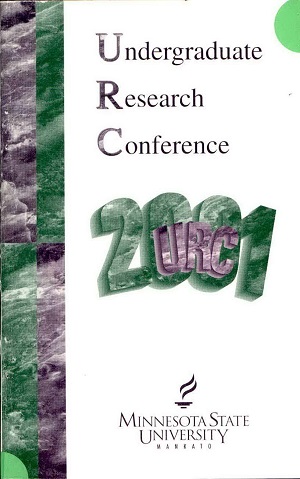A Comparison of Turn Taking in the Spontaneous Speech of Children with Williams Syndrome and Typically Developing Children
Location
CSU
Student's Major
Speech, Hearing, and Rehabilitation Services
Student's College
Allied Health and Nursing
Mentor's Name
Patricia Hargrove
Mentor's Department
Speech, Hearing, and Rehabilitation Services
Mentor's College
Allied Health and Nursing
Description
Williams Syndrome is a genetic disorder accompanied by developmental delay. Children with Williams Syndrome are considered more talkative than typically developing children. However, much of the evidence for this claim is based on parental reports rather than on empirical research. Therefore, the purpose of this project is to answer the question "Are children with Williams Syndrome more talkative?" Using audiotapes from the Speech and Hearing Clinic, six children with Williams Syndrome and six children whose language is typically developing will be studied. The children's spontaneous speech samples will be analyzed using a computerized language system (SALT). Based on claims in the literature, it is expected that the Williams Syndrome subjects will dominate conversations more than typically developing subjects. Such findings would support the view that children with Williams Syndrome are very talkative.
A Comparison of Turn Taking in the Spontaneous Speech of Children with Williams Syndrome and Typically Developing Children
CSU
Williams Syndrome is a genetic disorder accompanied by developmental delay. Children with Williams Syndrome are considered more talkative than typically developing children. However, much of the evidence for this claim is based on parental reports rather than on empirical research. Therefore, the purpose of this project is to answer the question "Are children with Williams Syndrome more talkative?" Using audiotapes from the Speech and Hearing Clinic, six children with Williams Syndrome and six children whose language is typically developing will be studied. The children's spontaneous speech samples will be analyzed using a computerized language system (SALT). Based on claims in the literature, it is expected that the Williams Syndrome subjects will dominate conversations more than typically developing subjects. Such findings would support the view that children with Williams Syndrome are very talkative.




